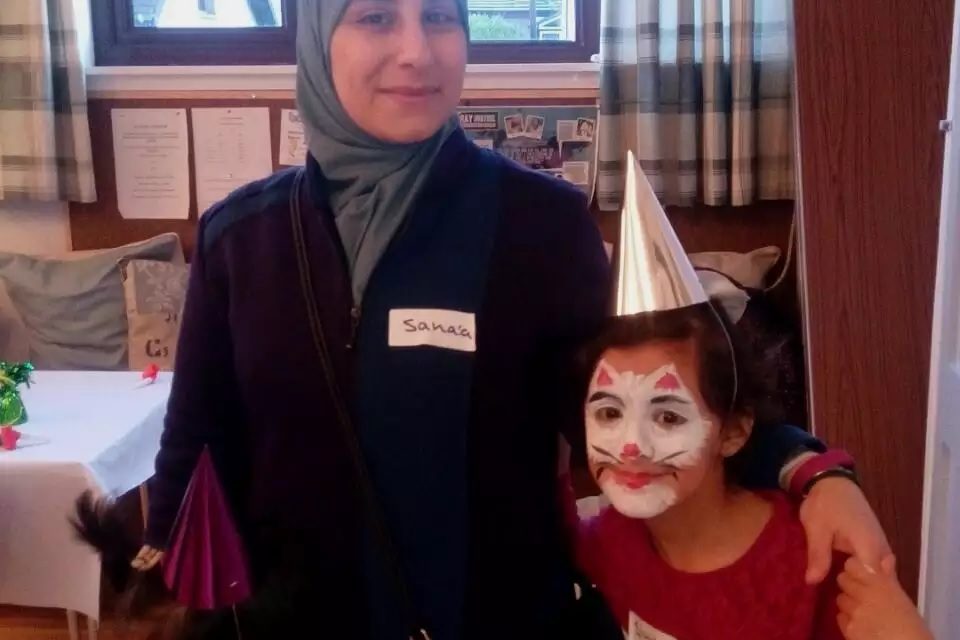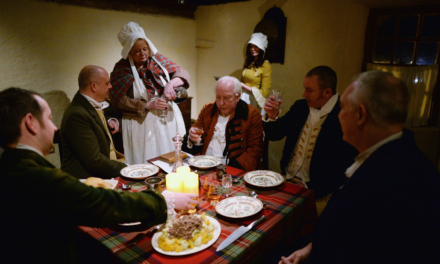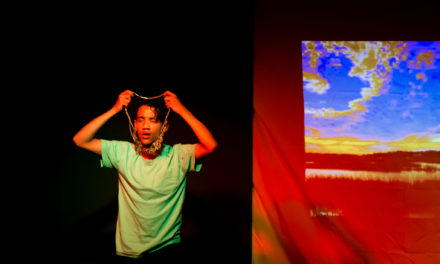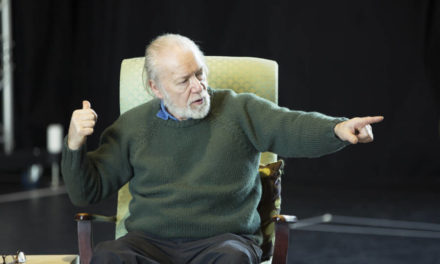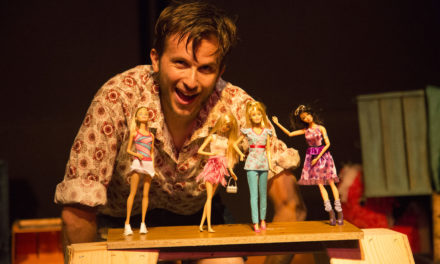A 2,400-year-old Greek tragedy is to be staged in one of Scotland’s most deprived communities to help Syrian refugees overcome the psychological traumas of war.
The Trojan Women Project will set up weekly drama workshops in the Easterhouse area of Glasgow over the next seven months.
Involving predominantly women–but also men–who have fled the seven-year-old conflict, the dramatic process will culminate in a performance of Euripides’ epic play The Trojan Women, written in 415BC, whose themes are conquest, war, and displacement.
Those taking part will be invited to open up about their own experiences in the Syrian conflict, in the presence of trained psychologists as well as drama tutors.
The theatre team works with psychologists to help refugees retell their ordeals.
The final production will feature a narrative made up of first-hand accounts of the Syrian conflict as experienced by those involved in the workshops.
William Stirling, is co-founder of the project with his wife, filmmaker and former foreign correspondent Charlotte Eagar, who originally set up the project five years ago in Jordan for Syrian refugees and local deprived children in Amman.
The project will be launched next Wednesday at The Bridge community center (June 20) as part of the Scottish Refugee Festival (June 15 to June 24), organized by the Scottish Refugee Council (SRC).
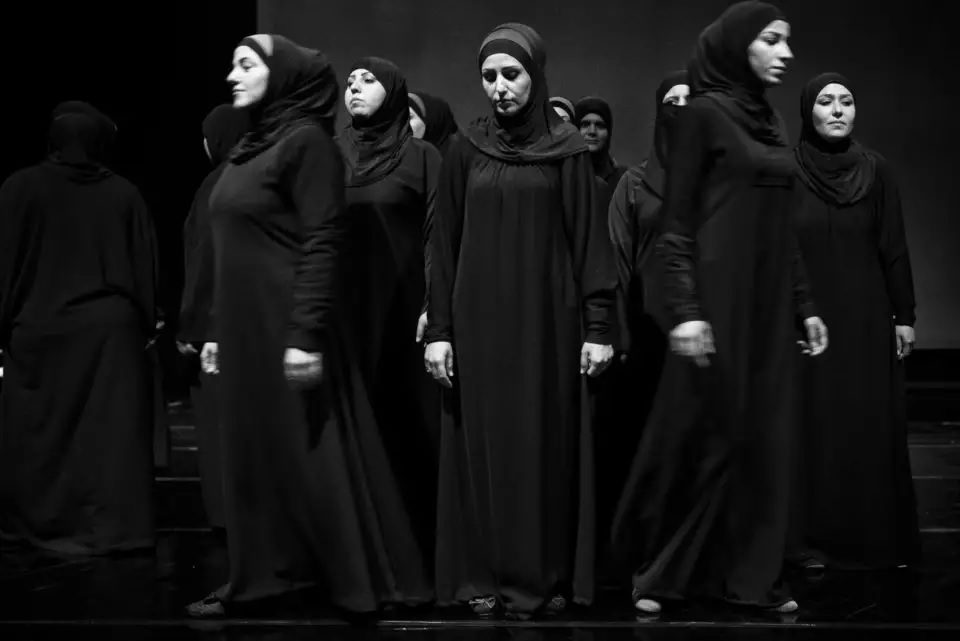
Mr. Stirling told the i newspaper how the project helps those taking part.
“The act of saying what happened to you, and working this through with other people that this has happened to…helps you feel you are not alone. All these other people it’s happened to.
“Just that feeling of being in a room with a lot of people who just want to try do something about it, who want to speak about it.
“This is not an easy thing for women to do. There’s a lot of traditional thinking about the role of women, and being an actress is definitely not necessarily Top Of the Pops.
“So a lot of them had to persuade their husbands, fathers, brothers to go and do that–and some were very supportive and some, frankly, weren’t.
“I can tell you that they became a lot more confident afterwards. But when they arrived they were kind of clutching their handbags and their kids–everything they’d come out of Syria with–but by the end they’d really come out of their shells. They had really taken control again.”
Glasgow takes more refugees per head of population than anywhere else in the UK, except Middlesbrough, according to SRC, and roughly a third of Glasgow’s refugees live in the east of the city.
Easterhouse alone is home to around five percent of Glasgow’s total.
Many of the refugees taking part, however, are expected to travel in from other parts of the Central Belt (central Scotland).
The drama workshops will include creche facilities to allow families to freely engage in discussions away from their children.
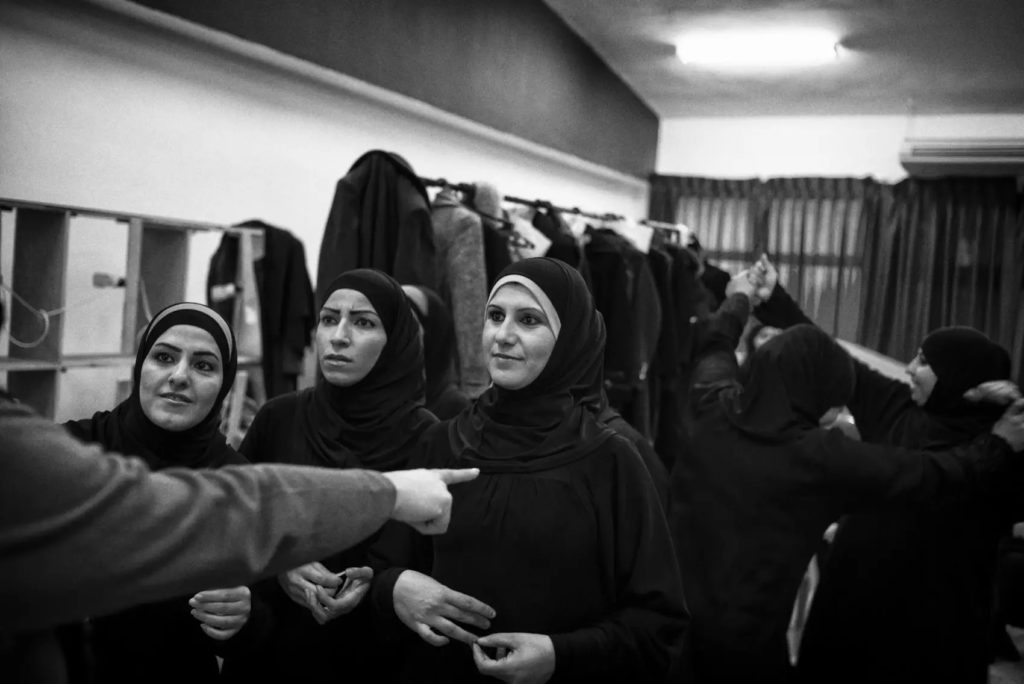
The Trojan Women Project worked originally with Syrian refugees in Amman, Jordan. Picture: Trojan Women Project/UNHCR
“They really see the benefits”
Mr. Stirling said:
“I know that if we don’t see many people on the first week, we will get more in the second week–and in the third.
“From my experience of all our projects, everyone has really enjoyed doing it–even if they’ve turned up for all the wrong reasons, they really enjoy it. They really see the benefits.
“We are not claiming to cure PTSD or depression. What we’re saying is that this group setting seems to have helped a lot of people who we have worked with in the past.”
He adds: “A lot of people join because they simply want to bear witness.
“They want someone to care. A lot of them say ‘I always wanted to be on the news, I wanted to be interviewed like those people you see on the TV saying what happened in our suburb–but I never was.’”
Sanaa Mohammad, 35, is a mother of five, who arrived in Scotland 11 months ago.
She fled her home city of Daraa, in southern Syrian, after witnessing the massacre of women and children by government forces at the school where she was a teacher.
A trained psychologist herself, she took part in a radio project run by the same team last year. She expects to be involved in the Easterhouse workshops.
“I think it was good because I share feelings that I can’t speak about comfortably with anyone before–but the drama course made me describe my feeling with other people who have same experience and we support together.
“The experience helped everyone, I think.
“They were from the same country, same culture–they speak real thing, just what happened. How they feel about that.
“And each one was from a different city–and I think I see another side to my country, my people.”
SRC spokeswoman Pauline Diamond Salim said:
“For a lot of people fleeing acts of terrorism and war in their home countries, east Glasgow is a really important place where they feel safe and able to start rebuilding their lives.
“People who come here in need of protection have a lot to recover from.
“Projects like this are a great way to help people make new friends and develop new skills.
“We’re really looking forward to seeing the final production.”
Cllr Mhairi Hunter, Chair of Glasgow City Integrated Joint Board, said:
“Glasgow is proud to welcome refugees from around the world and help them rebuild their lives in a safe and supportive environment.
“Many have been through traumatic experiences which can leave long-lasting psychological scars.
“Projects such as The Trojan Women are one way of helping people overcome these ordeals by bolstering their confidence, increasing their sense of belonging and encouraging them to speak about their ordeals with others.
“I wish the participants every success–both in the project and in their new lives in Glasgow.”
This article originally appeared in iNews on June 12, 2018, and has been reposted with permission.
This post was written by the author in their personal capacity.The opinions expressed in this article are the author’s own and do not reflect the view of The Theatre Times, their staff or collaborators.
This post was written by Ian Marland.
The views expressed here belong to the author and do not necessarily reflect our views and opinions.

